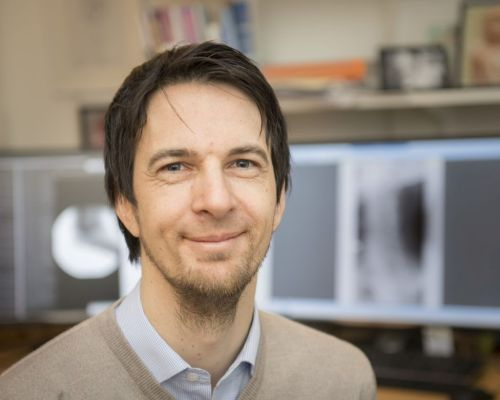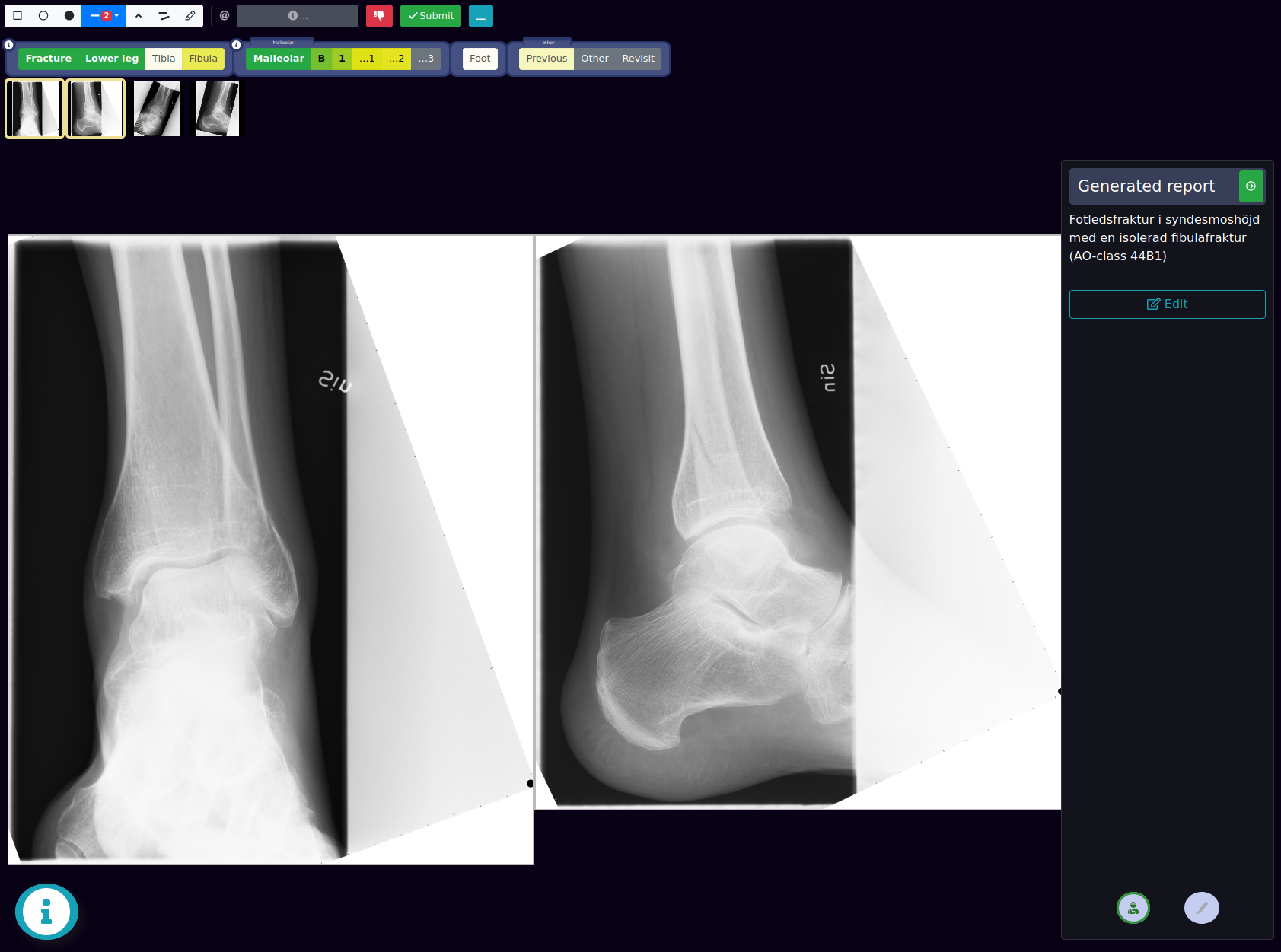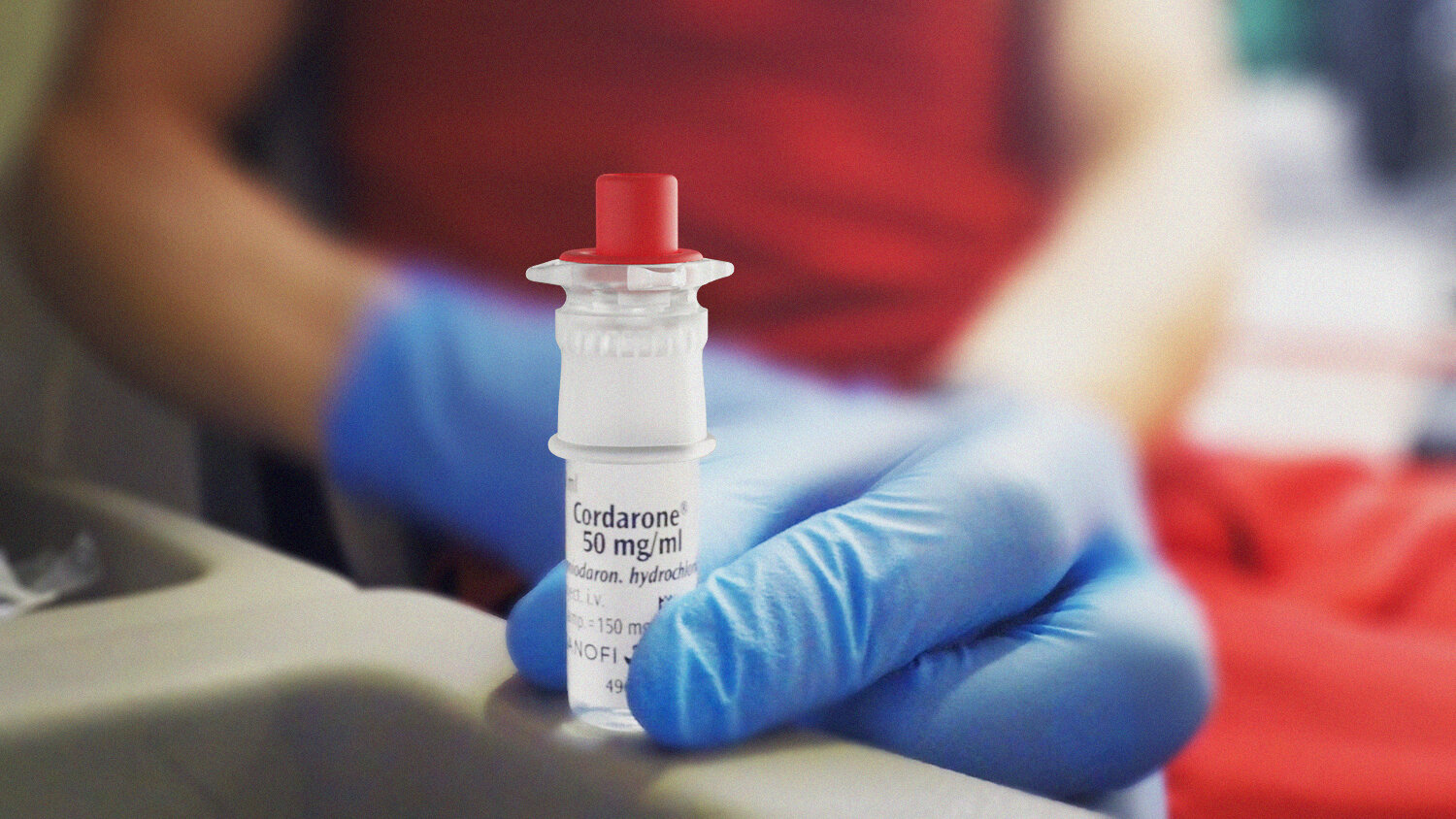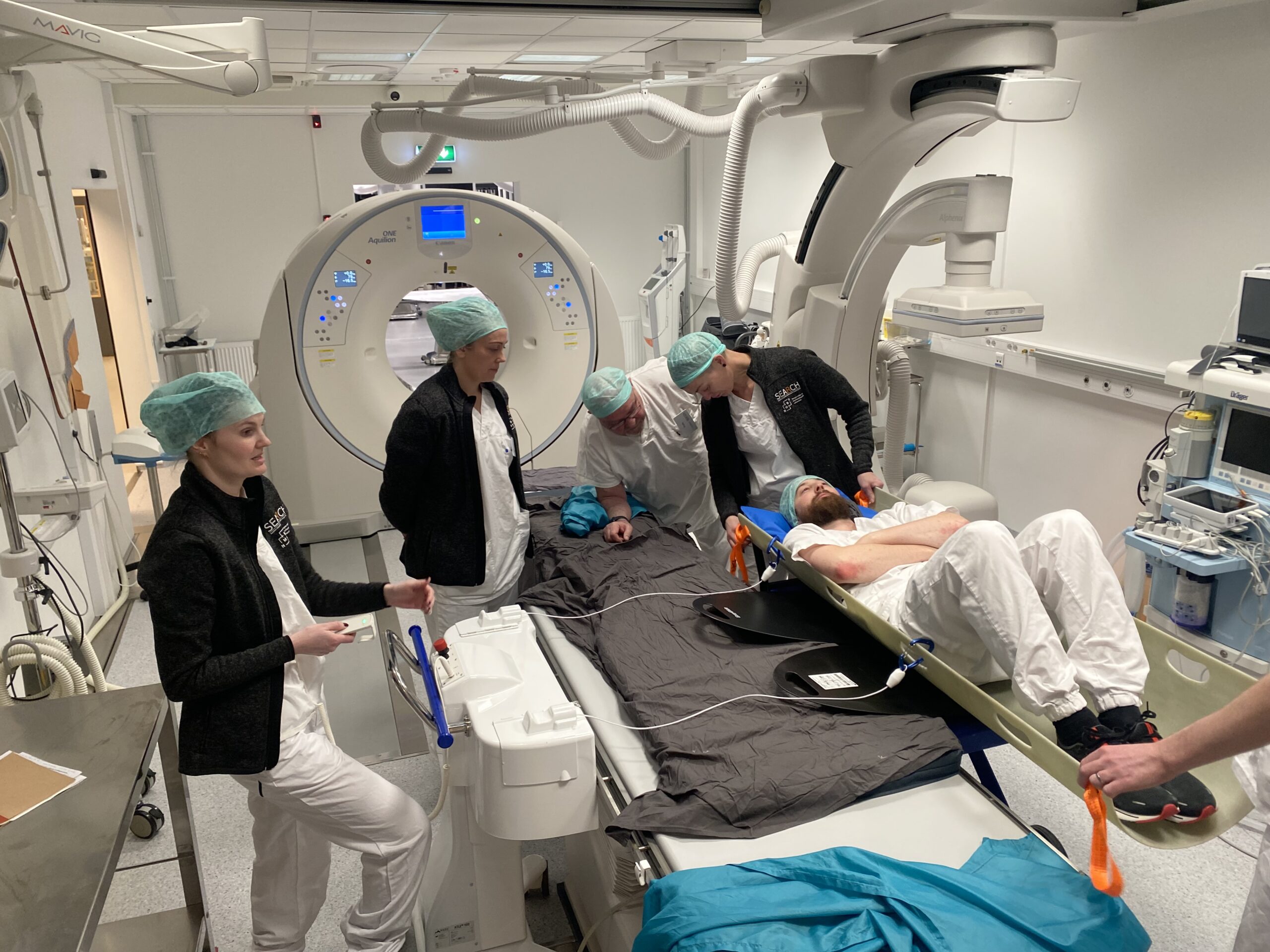Max Gordon is a doctor with a coding background at the Department of Orthopedics at Danderyd University Hospital. He is certain that big changes are coming in the field of AI tools in Health Care. By using these AI tools, one will not only recognise fractures, but also identify what kind of fracture, and even what action should be taken as a result

–The impact this technology will have is hard to say exactly, but the potential is limitless. We are still in early trials, but this could change how we do everything from reviewing radiographs, to how we do surgery, says Gordon.
Bringing it closer to clinical use
The research into deep learning for interpreting orthopedic radiographs has made great progress, but unfortunately this is still not the case when it comes to clinical use. Gordon has been engaged in developing a new software tool to bring AI closer to the daily work with patients.
–The current code is for bridging the gap between the research and clinical implementation. The software presents our deep learning algorithm output to clinicians who are then aided in their work, Gordon explains.
Nordic Medtest AB, as a Nordic Proof partner, was given the task to analyze the code for the core components of the presentation application and identified potential sources of problems.
Doctor with a coding background
–As the application was developed by me, a doctor with a coding background, it was important to validate that the code was up to standards and did not include obvious security flaws. We were recommended to use Nordic Medtest by our medical technicians at the hospital. It proved useful with this independent review from someone on the outside, says Gordon.
No code is perfect, and a small team can develop peculiarities. Gordon therefore sees great value in having an external partner to confirm that the best practices have been followed. Nordic Medtest also pointed out where the team should focus their efforts in order to further improve quality and long-term maintenance.
Nordic Medtest is part of Inera AB, owned by Swedish regions, municipalities and SKR Företag (Swedish Association of Local Authorities and Regions). Given that Nordic Medtest is a software testing company focusing on eHealth, it is able to complement the Nordic Proof partner network in a positive way.
Search for “stinkers”
Through independent testing and quality assurance, Nordic Medtest is contributing to more useful and safer IT in health care. They do so by providing a wide range of tests that are conducted before the tools are deployed in health care eco systems.

–In this case we searched for so called “stinkers” in the code, which means mistakes or weaknesses that might cause some sort of trouble. It´s normal to find some stinkers, we did so also in the AI software developed at Danderyd, says Jörgen Larsson, Unit Manager at Nordic Medtest.
He explains that AI code is quite comprehensive. In this case Nordic Medtest used a tool called Sonar that does a static analysis of the code. Without taking into account what the code actually does, this tool can go through a large volume of code and detect anything that seems suspicious.
–Some stinkers are absolutely necessary to correct, whereas others are just minor flaws which are possible to live with. Sometimes the code works perfectly from the beginning but run in to problems as time goes on and you maintain it by fault corrections and further development. We can prevent this kind of troubles through our code analysis, says Larsson.
Does it work with other systems?
In its everyday activities, Nordic Medtest carefully checks many aspects of the software, in particular its ability to work well with other systems. Interoperability is the ability of different systems to work together and to be able to exchange information safely and with good standards.
–At Nordic Medtest we work with both technical interoperability, technical communication, and semantic interoperability that involves the common interpretation of the information being exchanged, Larsson explains.
Nordic Medtest also tests usability, in other words, its user-friendliness and function as well as performance. It is of great importance that the systems used in health care, help benefit the everyday life of healthcare staff.
Compliance with regulations
Security, privacy and integrity are essential in eHealth solutions. Therefore, software for health care must be developed in compliance with stringent regulations. Information must be protected and made available through appropriate processes, quality assured and based upon reliable technical solutions.
–Nordic Medtest focuses on laws and regulations concerning personal data owners and its representatives. Knowledge of laws and regulations is crucial for managing personal data safely and reliably, says Larsson.


